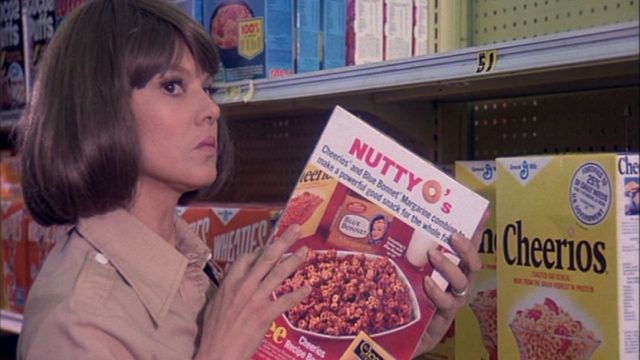She’d been on the list about as long as I’ve had the list going. I was going to get to her, of course, but it seemed as though there was always someone else ahead of her. The funny thing is that the Celebrating the Living column started when three people I mostly knew from Disney movies died in rapid succession, and that’s where I’ll always know her first. I am in fact astounded to learn how much of her career I’d missed just thinking of her as Kiddie Car.
Rather more important than my youth in front of Disney movies was her own youth in acting, of course. As a teenager, she joined Playwrights Theatre, where she met Elaine May, Mike Nichols, and Ed Asner. She joined the Compass Players, America’s first ongoing improv troupe, and when that fell apart, she became one of the first cast members in a little production called The Second City that you may have heard of. She was nominated for a Tony for her performance in their Broadway version, her own Broadway debut. On a Clear Day You Can See Forever was created for her. She got raves in The Apple Tree—and then quit the stage. She didn’t want to be famous; she just wanted to act, and she was apparently feeling limited by the shows she was in.
In fact, she apparently chose movies she expected to fail. Amazing, then, that in addition to Freaky Friday and The North Avenue Irregulars (one rather better known than the other, I grant you), she was in Nashville for Altman and Family Plot for Hitchcock. And apparently she turned down Hitchcock at first, which was probably good for him. She made Peggy Sue Got Married for Coppola, too, and Dirty Rotten Scoundrels for Frank Oz. Her final film appearance was as Martin’s dotty mother in Grosse Pointe Blank.
She said she liked the people, not the work itself. She chose to teach acting, because she enjoyed that still, but she didn’t want to be on stage or screen anymore. Whatever else you can say about her career, it is exactly the career she chose. That in itself is admirable to me; she didn’t let anyone talk her into much of anything she didn’t want since she voted not to take Second City from Chicago to Broadway. She said she could’ve been persuaded back into movies by a great script and ten million dollars, but it seemed unlikely those would come along.
She mostly played a certain whimsical charm, from what I know of her career. Whether she was trading places with her teenage daughter, taking down the mob, or using phony spiritualism for fun and profit, she was simply fun to watch. Possibly that’s why I didn’t get around to her—it’s the old “we don’t take comedy seriously” thing again. Every once in a while, I’d see her in something and think, “Yeah, I should really write about her.” Now I have, I suppose. I wish I’d done it sooner.


